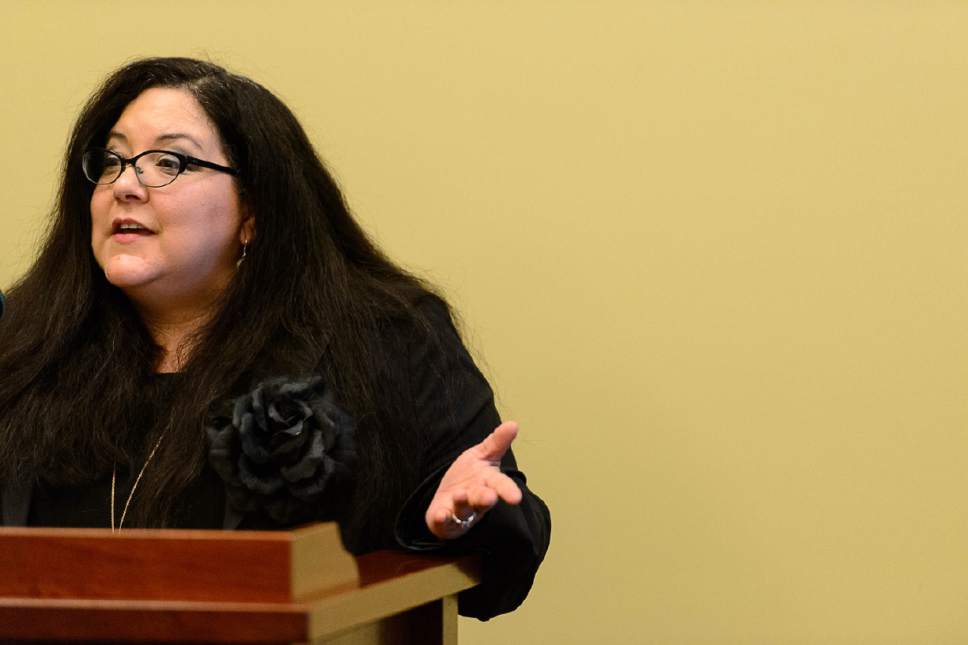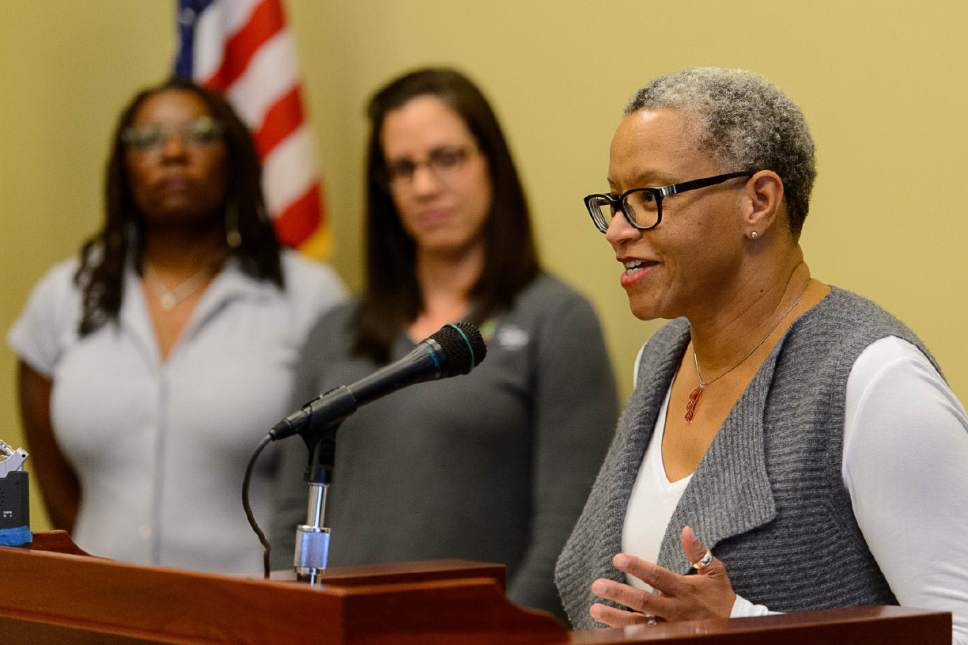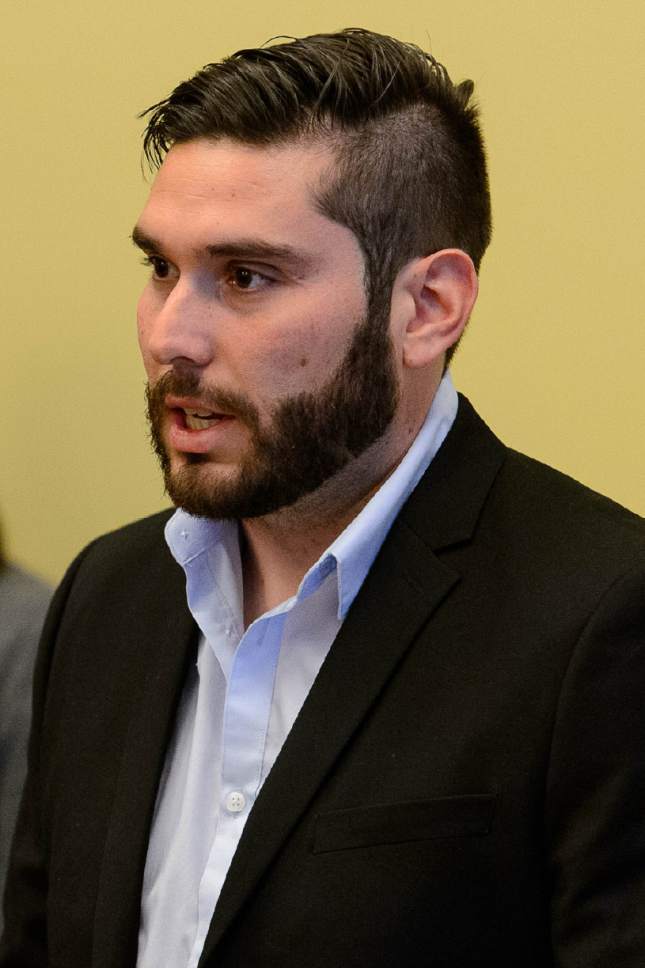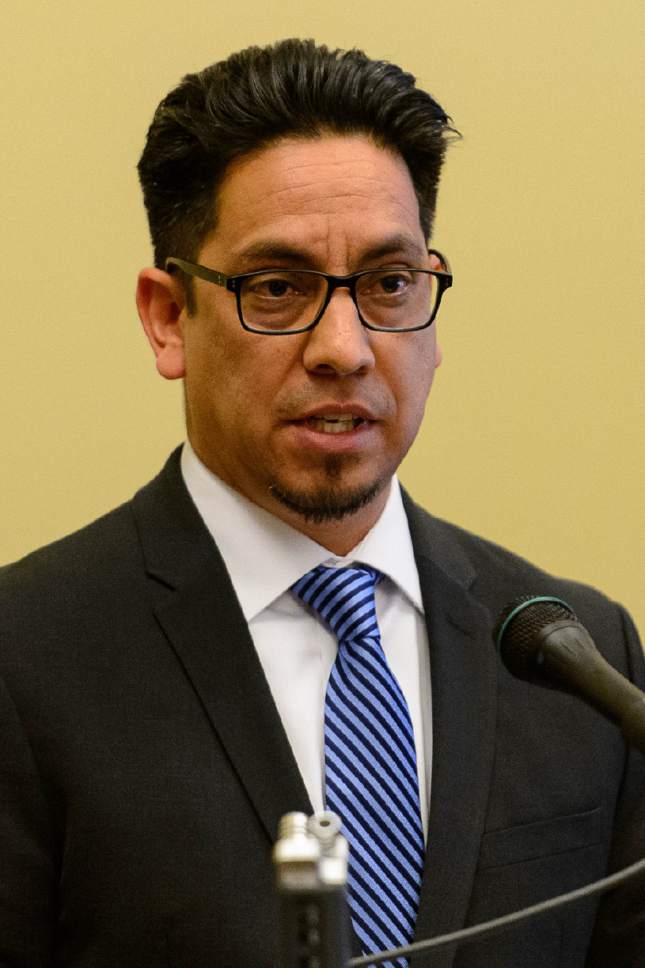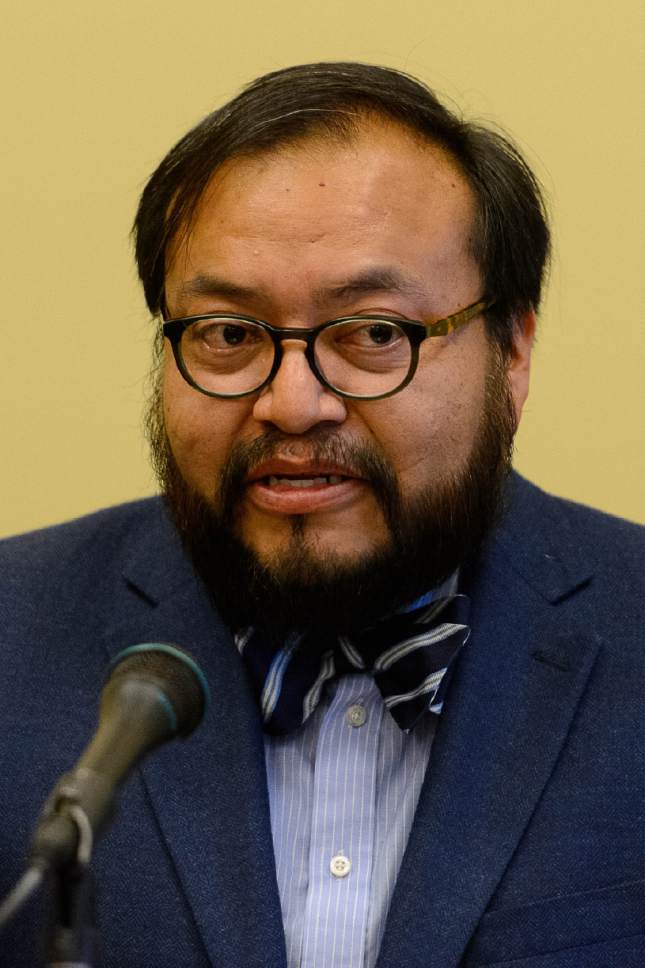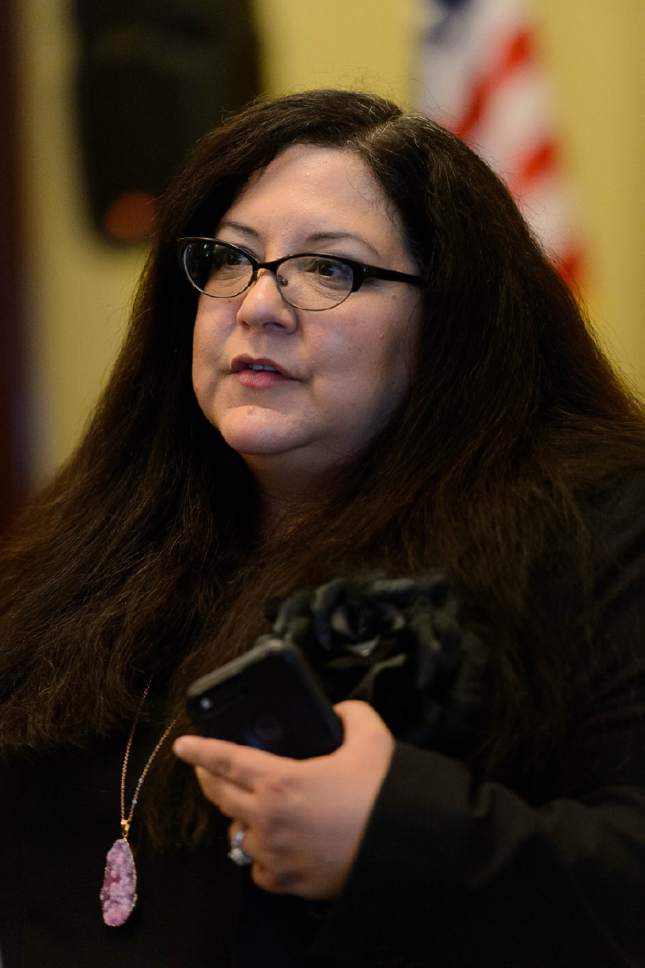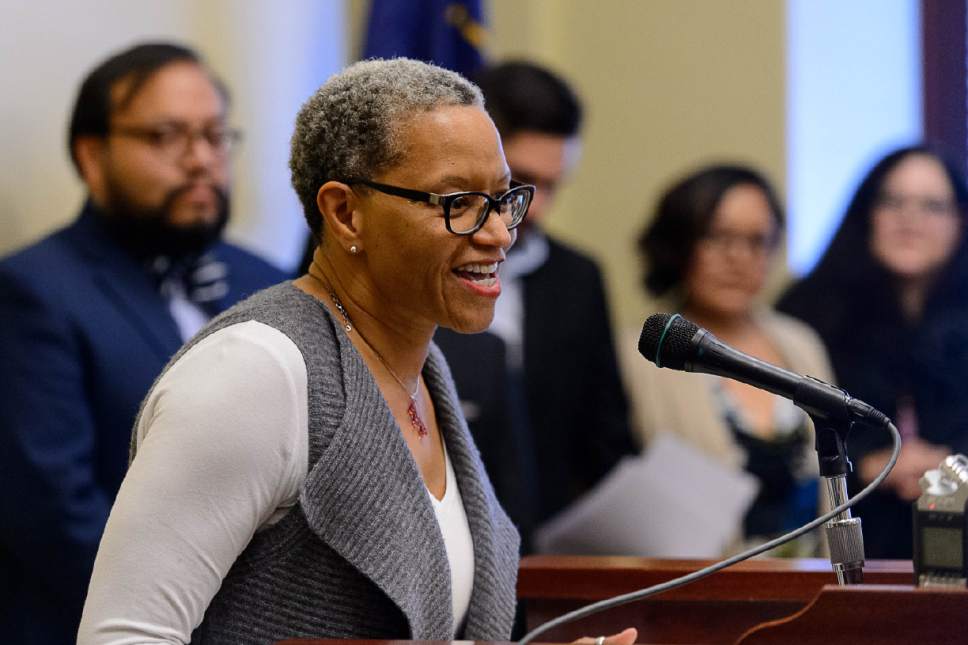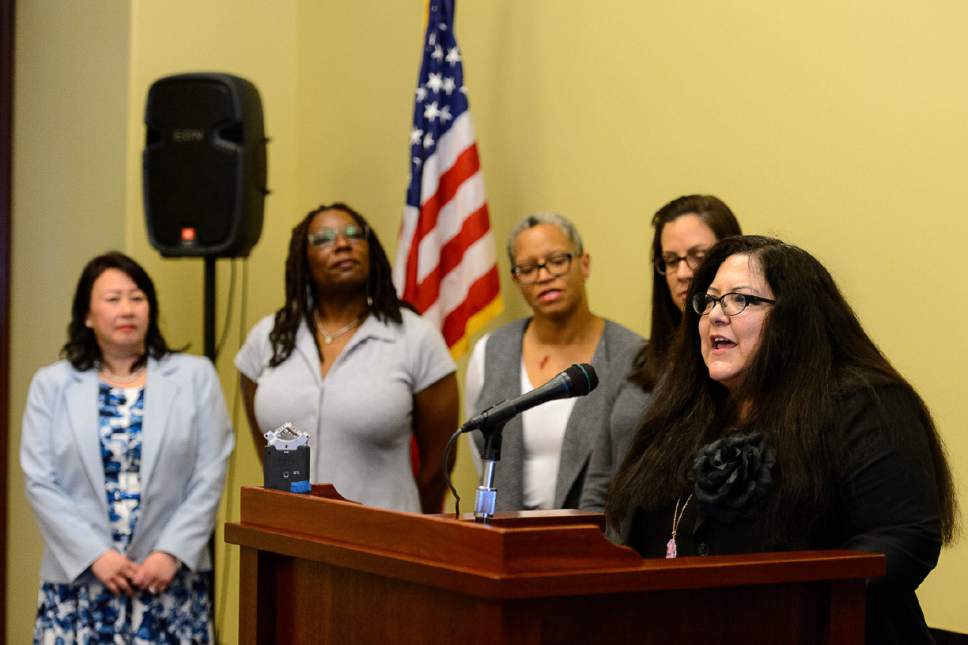This is an archived article that was published on sltrib.com in 2017, and information in the article may be outdated. It is provided only for personal research purposes and may not be reprinted.
Antonella Packard says it's obvious: President Donald Trump's administration is a threat to minorities.
"The hens are being guarded by the fox," she said.
Certainly her concerns about racism and deportation and marginalization "have been percolating for a long time," but the 2016 election aggravated the situation for her. And now, she says, it's time to act.
Packard, a Honduras-born American and the director of Utah's League of United Latin American Citizens, spoke at a news conference Wednesday that unveiled a partnership among nine minority organizations in the state. The JustUs Utah initiative is their pledge to revamp the political system for voters of color — from redistricting to distribution of polling places.
"We're making our way to the table," Packard said. "Whether we're invited or not, here we are."
The group — with representatives from the black, Latino, Tongan, refugee, American Indian, Japanese and Chinese communities within the state — is an offshoot of the Multicultural Engagement for Utah coalition with the target of reducing minority oppression in politics. Packard said that will include fundraising and pushing more candidates to run in state races, such as James Singer, a Navajo running for Sen. Orrin Hatch's seat.
The effort also calls for registering more people of color to vote and redefining the issues that matter.
The problem, said Moroni Benally, cofounder of the Utah League of Native American Voters, is that certain ethnicities and races often get reduced to one or two platforms. American Indians are supposed to care about public lands and the environment, he said, and Latinos are pigeonholed into criminal justice reform.
"The truth is our issues are much broader and more complex," Benally added.
The group looks to expand its public policy reach into health care, Medicaid expansion, affordable housing and education. To do that will require collective action from communities of color in Utah — what Benally describes as an effort to "harness the power of about 300,000." That's the number of registered minority voters in Utah (which make up about 20 percent of the voting population in the state, according to 2015 U.S. census data).
It's a nonpartisan effort with common goals. And one of those is to stop gerrymandering that divides minority communities, Packard said. She pointed to state Sen. Todd Weiler, R-Woods Cross, as an example. Weiler's district is primarily in Davis County, including the predominantly white suburb of Bountiful, but it also stretches into a small corner of Salt Lake City's Rose Park, a largely minority neighborhood.
Packard is "incredibly frustrated" by that voting map, which she says diminishes any potential for people of color to band together and elect someone who is more likely to represent their concerns.
The Legislature is composed of mostly white lawmakers — making up some 90 percent of the body in past years while Utah's population has been roughly 79 percent white. The six-member federal delegation includes just one person of color: Rep. Mia Love, the first black Republican woman in Congress.
That's not enough, Packard said. "We're concerned. We don't like the conversation."
It's not a matter of supporting Democrats over Republicans, she said, but of being heard and represented.
Robert Lucero, director of the Ute Indian Tribe political action committee (PAC), said polling locations often require minorities to drive out of their way to reach them. For instance, he said, no voting machines were placed on the Ute Tribe's reservation in 2016.
"This is something that's just a clear case of voter suppression," he said. "This is just disenfranchisement."
The JustUs Utah initiative looks to raise funds for buses and vans that could transport voters to polling locations, in addition to appealing to the Department of Justice.
Benally said these efforts will make it harder for politicians to ignore minorities or take them for granted.
"For too long," he said, "we've been overlooked and neglected."


